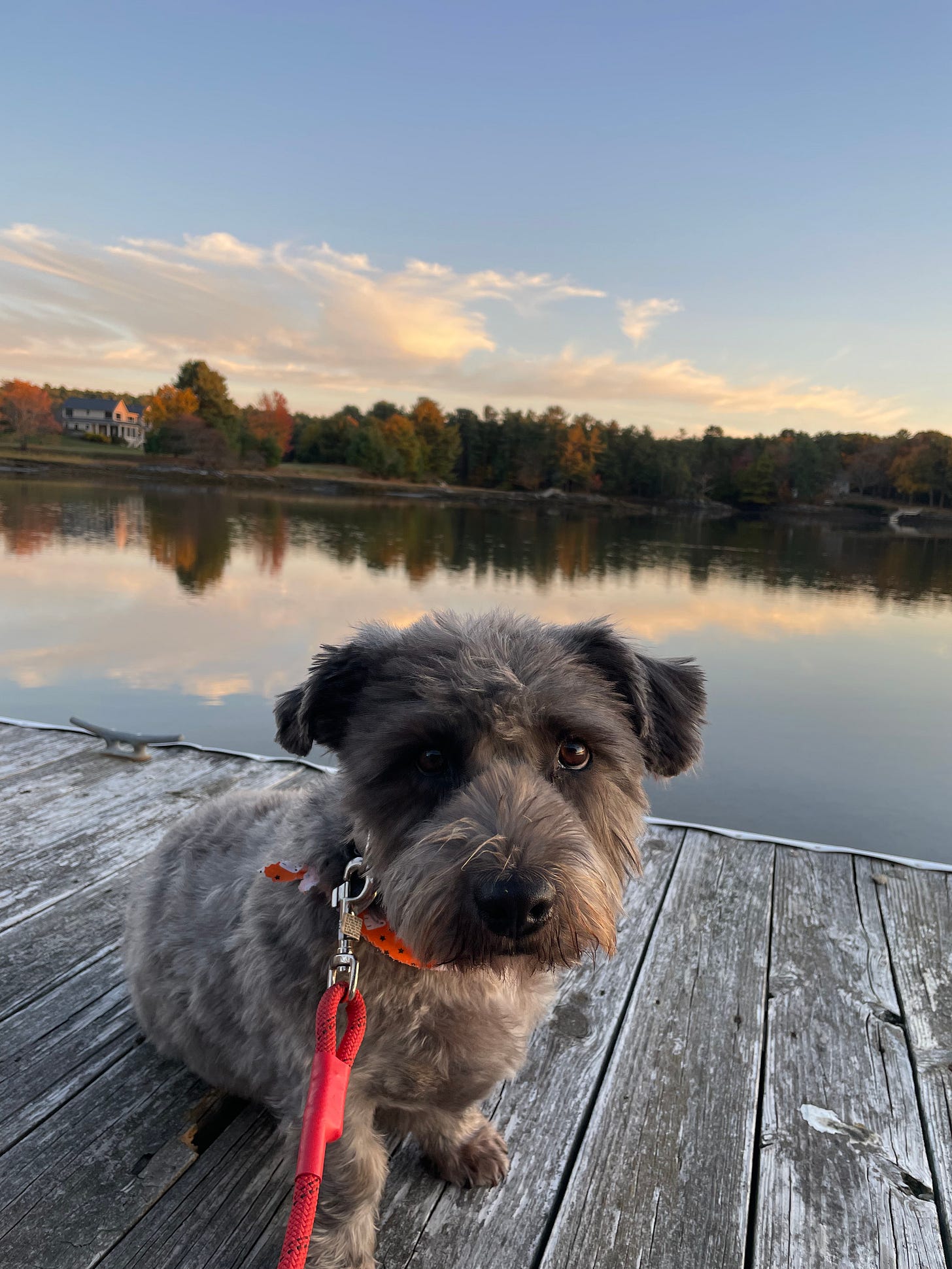Every time I spend a day or two with a dog- I begin to understand Mary Oliver.
Maybe it is the unbridled excitement, the way dogs find joy in the simple things.
Noses that sniff through blades of grass. Do you think each blade smells differently?
Maybe it is the way dogs don’t seem to wonder about their purpose. Do they know that by loving the world they are already fulfilling it? They seem much more concerned with simple things.
Maybe it is the way they embrace play and rest, each in their own season. Ball chasing, tail wagging, sunlit snoring. Unconcerned by the ticking of time, guided only by curiosity.
One of my favorite Mary Oliver poems is The Poetry Teacher.
The university gave me a new, elegant
classroom to teach in. Only one thing,
they said. You can't bring your dog.
It's in my contract, I said. (I had
made sure of that.)
We bargained and I moved to an old
classroom in an old building. Propped
the door open. Kept a bowl of water
in the room. I could hear Ben among
other voices barking, howling in the
distance. Then they would all arrive —
Ben, his pals, maybe an unknown dog
or two, all of them thirsty and happy.
They drank, they flung themselves down
among the students. The students loved
it. They all wrote thirsty, happy poems.
The last line always stays with me like a promise. Thirsty happy poems.
One can aspire to such a thing.
Oliver’s well known poem, Summer Day ends with the famous line: “Tell me, what is it you plan to do with your one wild and precious life?” If we look just before that, a less known hidden jewel:
“I don’t know exactly what a prayer is.
I do know how to pay attention, how to fall down
into the grass, how to kneel down in the grass,
how to be idle and blessed, how to stroll through the fields,
which is what I have been doing all day.
Tell me, what else should I have done?
Doesn’t everything die at last, and too soon?”
A thirsty, happy poem. Joy, so simple. Pay attention, be idle and blessed.
Blades of grass, sunlight, glistening water. If you sit long enough with any of it, joy begins to flood.
Many of us are seekers. We look for: the lesson, the next step, we attempt to string together something just beyond our grasp. Perhaps, it is akin to chasing our own tails. Funny, silly, a little endearing to any wise being watching carefully.
I want to reassure you dear reader, that there is nothing wrong with being a seeker, or chasing your own tail. But can you be more present with what is right under your nose?
Patricia McLaughlin writes that “dogs speak words but only poets and children hear.”
If we listen deeply, we can find poetry teachers hidden behind unlikely faces.
Special thanks to the Kittery Duo for helping me write this piece. They slept on the job, demanded belly rubs, and fetched balls they refused to give back.
They were indeed the best of poetry teachers.






